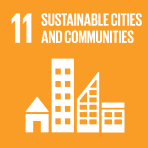Foreword

- Author: United Nations
- Main Title: Tax Policy for Sustainable Development in Asia and the Pacific , pp 8-10
- Publication Date: June 2018
- DOI: https://doi.org/10.18356/c00f4bd4-en
- Language: English
The need for optimal tax policy to mobilize the desired level of resources and promote tax policy frameworks that can respond to the inclusive, sustainable and multidimensional requirements of the 2030 Agenda for Sustainable Development at both national and subnational levels, has never been more pressing. Over and above existing financing flows, the Sustainable Development Goals call for additional funds for incremental public spending of anywhere from 2.0 to 5.8 per cent of gross domestic product (GDP) each year in low-income and lowermiddle income countries worldwide. The resource requirements to achieve universal access to basic infrastructure in the least developed countries is much steeper at nearly 10.7 per cent of their annual GDP. More than a third of the countries in the Southeast Asia and South Asia subregions collect taxes that amount to 10 per cent or less of GDP and the average tax rate across Asia and the Pacific is consistently below the average tax rate in developing countries worldwide. In Asia and the Pacific, decentralized tiers of government have also fallen behind in exploiting local taxes. Inadequate public revenues and distortions in tax regimes are obstacles to sustainable development.
-
From This Site
/content/books/9789213629420c001dcterms_title,dcterms_subject,pub_keyword-contentType:Journal -contentType:Contributor -contentType:Concept -contentType:Institution105



